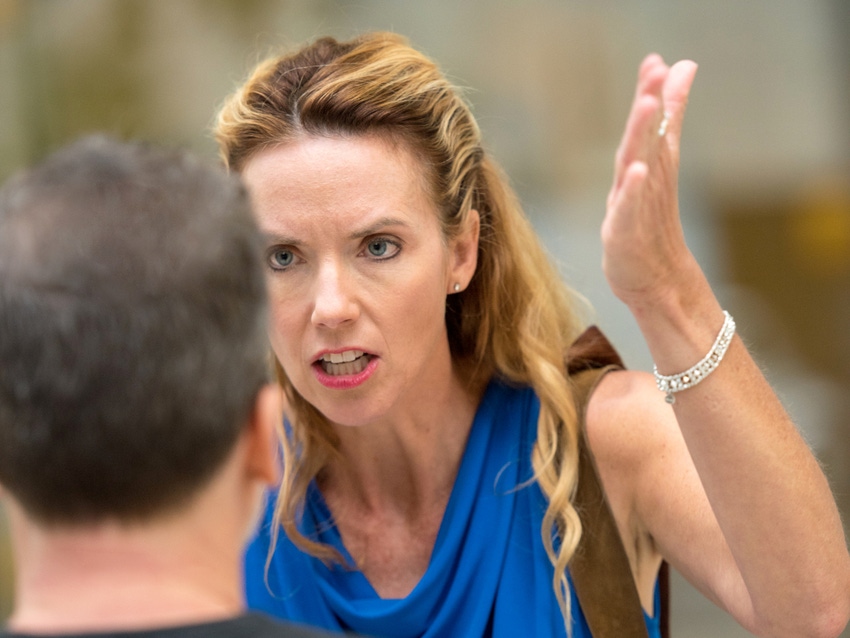Rural communities can’t afford to traffic in outrage. We’ve got too many real problems to deal with.

Editor’s note—Occasionally I run across an editorial, now-a-days called a blog, that does an excellent job describing an issue or situation that needs to be addressed. Such is the case here.
Many BEEF readers are leaders in their communities, serving as 4-H or FFA leaders, on the school board, as county commissioners and other volunteer tasks. As those who put their feet forward to volunteer know all to well, it sometimes isn’t a pleasant experience.
This guest blog addresses that head on.
“Dozens of people confronted the school board tonight…”
It’s the kind of 10 o’clock news lead-off that makes any rural school board member cringe. Anytime. Anywhere. Because they’ve likely been there, done that, been chewed out. Didn’t get the t-shirt. Maybe gave up on the school board.
The county fair board member could tell the same story. I watched a couple years ago as a belligerent parent cussed out a fair board member because he didn’t like the rules for the rabbit scramble. Red-faced and angry, as if somebody was taking away his actual rights as a living human being, not just telling him he couldn’t go out on the race track with his kid.
That’s what we’d call a disproportionate response at our house. Or as my kids would say, “You’re at a 10. I’m gonna need you to bring it down to a 2.”
Today, the mere mention of school consolidations, tax assessments, beer tents or – oh, my word - the Pledge of Allegiance can cause people to lose their ever-living minds. Outrage is always at hand. Never mind the facts.
READ: 4 Life lessons from the county fair
Some years ago, our community went through a contentious consolidation vote (that’s redundant, I know). I was talking one day with a man whose kids were in high school, who was a vocal opponent of the consolidation. Mine were still young so I asked him about the top math and science courses offered at the high school. He had no idea. Still, opposed.
That conversation stuck with me. When we can’t gather basic facts of a situation, or when we can’t consider all the facts of the situation, we can’t make an informed decision. We can’t have an intelligent conversation with our elected officials – like, say, a school board member – when we don’t take time to understand school policy. Sometimes, that policy dictates that a board cannot talk about a particular issue beyond the administration – like faculty, for example. But too many people sit in a school board meeting and assume if it’s not said to them, it’s not said at all.
Outrage cycle
Or people don’t understand how it all works. Like when someone decides not to participate in the floral hall because the fair board sold the building. Hint: your boycott doesn’t affect ownership. It just kills the fair.
And now, of course, we can take all this to social media where the outrage cycle rewards a hot take or a spicy comment. Where everyone can get whipped into a frenzy, at least until the next outrage comes along.
And where people think they can say whatever they want without consequence, so long as they tack on “just my opinion” or my personal least-favorite, “just saying.” Just don’t.
READ: On industry division and export growth
It’s lack of respect that drives those kinds of comments. Every year, I read through lists of organizations and boards that our Master Farmers serve on. The work they’ve done. The committees they’ve served on. The hours represented. These boards are quite literally the only way anything gets done in our rural communities.
I wonder how it feels to them, to have a loud, belligerent, uninformed yet highly opinionated community member confronting them about the latest outrage. Used to, you got talked about around town. Maybe you got an angry phone call. The modern version lets you be vilified on social media, where anyone can jump in and it can fly around the world in seconds, and your kids and grandkids can read it.
We need to respect authority, leadership and experience – and unpaid volunteers who take time away from their families to serve the community.
The buck stops
We need to think about responsibility. Like when a community member stirs up outrage at the school over kids who can’t get into the building early on a cold day. But who was responsible for dropping those kids off too early in the cold?
We place our trust in institutions but at the end of the day, I am responsible for my people. The end.
READ: 7 traits of a strong beef industry leader
Our rural communities are being stymied by a lack of fact gathering, the outrage cycle, and a general lack of respect for authority. The very real outcome of all of this is that people will quit volunteering. The cons of serving the community will eventually outweigh the pros. Look no further than the field of education; teachers are quitting already.
Friends, we don’t have time for this. Rural communities can’t afford to traffic in outrage. We’ve got too many real problems to deal with.
Spangler is editor of Prairie Farmer.
About the Author(s)
You May Also Like





